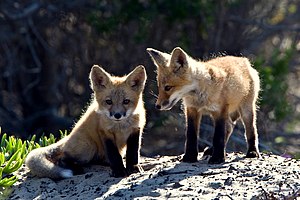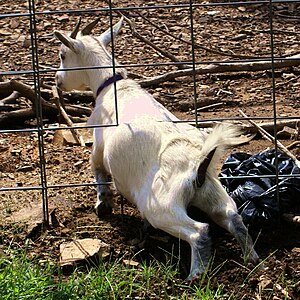 Big Food has given hundreds of thousands of dollars to defeat the country’s first mandatory GMO labeling laws. It’s time for us to step up and fight back. By Ronnie Cummins August 3, 2012
Big Food has given hundreds of thousands of dollars to defeat the country’s first mandatory GMO labeling laws. It’s time for us to step up and fight back. By Ronnie Cummins August 3, 2012
After 45 years of hard work and grassroots struggle, the organic community has built up a $30-billion organic food and farming industry and community. This consumer and small farmer-driven movement, under steady attack by biotech and Big Food lobbyists, with little or no help from the federal government, has managed to create a healthy and sustainable alternative to America’s disastrous, chemical and energy-intensive system of industrial agriculture. Consumer demand is behind strong organic sales. Conscious of the health hazards of genetic engineering and chemical agriculture, and the mortal threat of global warming and climate change, millions of Americans are demanding food and other products that are certified organic.
It’s a hopeful sign that, in spite of economic recession, organic foods now make up 4.2 percent of all grocery store sales. However given the magnitude of the country’s public health, environmental, and climate crisis, 10 percent annual growth in the organic sector is simply not enough to reach the proverbial ‘tipping point” before our current crisis metastasizes into what can only be described as a catastrophe.
In the food sector, we cannot continue to hand over 90 percent of our consumer dollars to out-of-control, biotech, chemical-intensive, energy-intensive, greenhouse gas polluting corporations and “profit at any cost” retail chains. The growth of the Organic Alternative is literally a matter of survival. After two decades of biotech bullying and force-feeding unlabeled and hazardous genetically engineered foods to animals and humans, it’s time to move beyond defensive measures – such as petitioning the FDA – and go on the offensive. With organic farming, climate stability, and public health under the gun of the gene engineers and their partners in crime, it’s time to do more than complain. With more than 1/3 of U.S. cropland already contaminated with Genetically Modified Organisms (GMOs), with mounting scientific evidence that GMOs cause cancer, birth defects, and serious food allergies, and with new biotech mutants like alfalfa, lawn grass, ethanol-ready corn, 2,4 D-resistant crops, and genetically engineered trees and animals being fast-tracked for approval by the government, with absolutely no pre-market safety-testing required, time is running out.
The burning question for us all then becomes how — and how quickly — can we move healthy, organic products from a 4.2% market niche, to the dominant force in American food and farming?
The first step is to change our labeling laws. Nearly 80 percent of non-organic processed foods, including so-called “natural” foods, contain genetically engineered bacteria, viruses, antibiotic-resistant genes, and foreign DNA. Yet none of these foods are labeled. No wonder only 30 percent of Americans realize they’re probably eating GMOs on a regular basis. Health-minded and environmentally conscious consumers actually buy more products marketed or labeled as “natural” ($50 billion a year) than they do organic ($30 billion), either because they don’t understand the difference between organic and “natural”, and/or because so-called “natural” foods are typically cheaper than certified organic. For instance, two-thirds of the foods sold in Whole Foods Market or Trader Joe’s are not organic, but rather “natural.” Polls indicate that consumers are confused about the qualitative difference between organic and natural products, with a near-majority believing that “natural” means “almost organic.”
It’s time to put an end to this massive fraud, and take back our right to know what’s in our food. Since the federal government and the White House seem to listen more to Monsanto and Big Ag than the 90 percent of Americans who support mandatory labeling of GMOs, OCA and allied activists have decided to bypass Washington politicians and take matters into our own hands.
What is likely the most important food fight in a generation is unfolding in California. The grassroots-powered Nov. 6 California Ballot Initiative (Proposition 37) to require labels on genetically engineered foods and to ban the routine industry practice of marketing GMO-tainted foods as “natural” or “all natural” is approaching a decisive moment. The outcome of this ballot initiative will determine whether GMO foods are labeled, not only in California but across the entire United States and Canada as well. It’s time for all of us who care about an organic and sustainable future to close ranks and support the Nov. 6 California Ballot Initiative (Proposition 37). Over 650 organizations, organic companies and retail stores have already endorsed the campaign. But we need thousands more.
We need volunteers to help out — in California and nationwide. Please sign up (see the link at the bottom of this story) if you are willing to approach the managers of the retail stores, CSA, restaurants, or farmers market where you regularly buy your organic food and ask them to join the more than 100 retail stores that have already publicly endorsed Prop 37. Once your neighborhood health food store or co-op has endorsed the campaign, you can get them further involved in distributing campaign information and raising money. CA and our allies in this campaign to pass Prop 37 have raised almost $4 million dollars so far, but Monsanto, the Grocery Manufacturers, and the Farm Bureau will spend $20-40 million to defeat Prop 37. Thank you to the 15,000 people who have already made donations to OCA or the OCF for this campaign, but we need to raise even more.
Restoring consumers’ right to know, banning the industry practice of marketing GMO-tainted foods as “natural,” and starting to drive genetically engineered foods off supermarket shelves will not solve all of the life and death issues that are currently staring us in the face: the climate crisis, endless wars, economic depression, corporate control over government, and the health crisis. But cutting Monsanto and the biotechnocrats down to size and restoring consumer choice are good first steps toward sustainability and a healthy food and farming system. Just as important, in political terms, by defeating the Biotech Bullies and indentured politicians, we can begin to restore the tattered self-confidence of the American body politic. A resounding victory by the organic community in the California Prop 37 campaign will prove to ourselves and the currently demoralized body politic that we can indeed take back control over the institutions and public policies that determine our daily lives. Now is the time to move forward. Support Prop 37, the California Right to Know Genetically Engineered Foods Act. This is the food fight of our lives. Please join and support us in this historic struggle.
Ronnie Cummins is a veteran activist, author, and organizer. He is the International Director of the Organic Consumers Association and its Mexico affiliate, Via Organica. http://www.organicconsumers.org.
Source URL: http://www.commondreams.org/view/2012/08/02-0

















 .
.